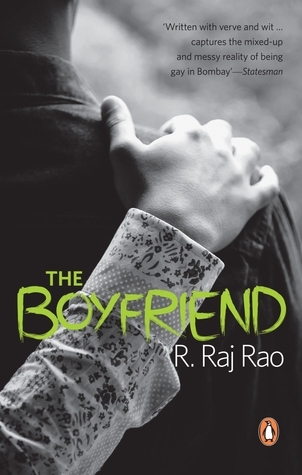What do you think?
Rate this book


232 pages, Paperback
First published January 1, 2003
If the kitchen and the bogs were reduced in size, they might even be able to carve out an extra room for him, though the total area of the flat was less than 500 square feet. He could use this room to fuck
Come evening, and he would rush off to the maidan as if he were going to answer nature’s urgent call...Whenever he went to the Press Club, the restlessness showed. He couldn’t resist the temptation to slip out through the backdoor and enter the maidan.
Men who were physically disabled, for instance, turned him on. It could be any handicap: blindness, lameness, a hunched back; he was ready to give anything to sleep with them. Whenever Yudi spotted a blind man on the street, he ran up to him to ask if he needed help, say, to cross the road. The man was usually overwhelmed by the Good Samaritan’s kindness. He put away his white cane and gave his hand to Yudi. Yudi clasped the hand firmly. Even if he didn’t succeed in getting the poor soul into bed, he at least had a highly charged walk with him, as their hands had intercourse out there in the open.
Sights, sounds and smells have so much to do with mood. As the train went past the saltpans and trundled along the Vasai Bridge, Yudi and Milind managed to put the offensive thing behind them. They regained their lost spirits.
They walked quietly, lost, neither certain where their hotel was. Then came the calm that follows the storm.
Both Yudi and Milind felt rejuvenated by the raindrops that lashed against their skin.
Their anger melted away, and they hugged each other as if they were in Yudi’s bathroom, showering together.
However, when it came to perfumes, the fakers had no idea what to apply on their rancid bodies. They chose cheap Musafirkhana scents in fancy bottles, giving Yudi the feeling that the smell of their collective sweat would have been less revolting.
But Milind was imperturbable. What did the bitch know anyway? Why couldn’t she wash dishes in someone’s house and allow the master of the house to fuck her, if she was that desperate for pocket money? ‘Must flog her with my belt again,’ he told himself.